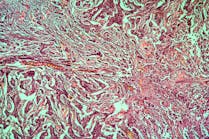A new study led by investigators at the UCLA Health Jonsson Comprehensive Cancer Center has revealed that common breast cancer treatments, including chemotherapy, radiation, and surgery, may accelerate the biological aging process in breast cancer survivors.
The findings, published in the Journal of the National Cancer Institute, show that markers of cellular aging—such as DNA damage response, cellular senescence, and inflammatory pathways—significantly increased in all breast cancer survivors, regardless of the type of treatment received. This suggests that the impact of breast cancer treatments on the body is more extensive than previously thought.
To examine how gene expression related to aging changes over time in women diagnosed with breast cancer, the team conducted a two-year longitudinal study that tracked women undergoing breast cancer treatment prior to receiving treatment and again following treatment to see how their biological aging markers evolved.
The team tracked the gene expression in their blood cells using RNA sequencing, focusing on markers that signal biological aging — including a process known as cellular senescence, which is when cells stop dividing but don't die. These so-called "zombie cells" accumulate over time and can release harmful substances that damage nearby healthy cells, contributing to aging and inflammation.
The data was then analyzed using statistical models to help identify aging-related changes.
The team found that regardless of treatment type there was an increase in expression of genes that track cellular processes involved in biological aging. Specifically, genes that capture cellular senescence and the inflammatory signal from these cells, indicating that their immune cells were aging faster than normal.
They also saw increases in DNA damage response genes, which are genes that are expressed when there is DNA damage. Although chemotherapy did have a slightly different pattern, similar to what others have shown, they also noted changes in women who did not receive chemotherapy.
“The results suggest women who receive treatment for breast cancer have a pattern of gene expression that indicates increased DNA damage and inflammation, which could be important targets for recovering from cancer and having a better quality of life in survivorship,” said senior author of the study Julienne Bower, professor of psychology in the UCLA College and psychiatry and biobehavioral sciences and member of the UCLA Health Jonsson Comprehensive Cancer Center.
The team is now exploring a new biomarker that measures a woman's biological age and the pace at which she is aging. This could help determine whether the aging signals detected during cancer treatment have a long-term effect on biological age. The team plans to investigate factors that may influence this, with a focus on protective behaviors such as exercise, stress management and healthy sleep patterns.





